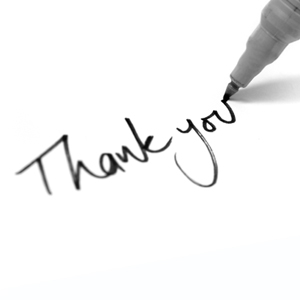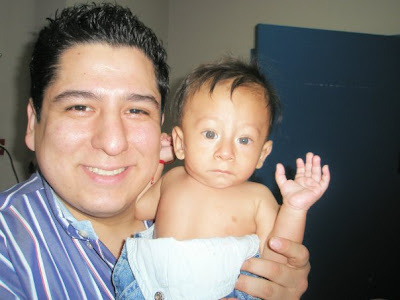If you were invited for an interview, you’ve conquered half the battle; the recruiter already thinks you can do the job based on your resume. The next half, though, is about proving them right. Things like body language or your outfit play a part, but only a supporting role to what really gets the spotlight: how you answer those tough questions. Here are some tips on how to deliver.
Q: “Tell me a little about yourself.”
What they’re really saying: “I’m trying to figure out why you want this job and if you’re a good fit.”
What they’re not saying: “Tell me a funny story from your frat days or what you watched on Hulu last night.”
There’s a way to be honest, express your individuality, and still tailor your answer to their expectations. For example:
A: “I studied social work at the University of Michigan because I knew it would be the best way to apply my passion for people. Since then, I’ve worked as a counselor for refugee agencies, where I became more informed of global, systemic issues. Those experiences paved a specific long-term career path for me, which is why when this position opened up, I knew it would be a good fit.”
Notice that the answer has a chronological, thematic structure. Your answer doesn’t have to be so formulaic, but the interviewer’s takeaway should be that applying for this job was the next natural step.
What they’re really saying: “I’m trying to figure out why you want this job and if you’re a good fit.”
What they’re not saying: “Tell me a funny story from your frat days or what you watched on Hulu last night.”
There’s a way to be honest, express your individuality, and still tailor your answer to their expectations. For example:
A: “I studied social work at the University of Michigan because I knew it would be the best way to apply my passion for people. Since then, I’ve worked as a counselor for refugee agencies, where I became more informed of global, systemic issues. Those experiences paved a specific long-term career path for me, which is why when this position opened up, I knew it would be a good fit.”
Notice that the answer has a chronological, thematic structure. Your answer doesn’t have to be so formulaic, but the interviewer’s takeaway should be that applying for this job was the next natural step.
Q: “What are your weaknesses?”
What they’re really saying: “You’re not perfect, so how do you compensate?”
What they’re not saying: “What are your weaknesses?”
What they’re really saying: “You’re not perfect, so how do you compensate?”
What they’re not saying: “What are your weaknesses?”
Employers are moving away from asking this question, but if you get it, avoid either extreme, i.e. sounding fake (“I work too much”) or too transparent (“I’m not very punctual, I tend to lose things,” etc.) It’s all in how you spin it:
A: I pay incredible attention to detail, but sometimes it causes me to miss the bigger picture. I’ve been working on that by approaching projects from a bird’s-eye view throughout the process.”
Q: “How do you handle stress?”
What they’re really saying: “Do you have good problem-solving, time-management, and decision-making skills?”
What they’re not saying: “How do you unwind?”
Cite at least one–if not all three–skills in your answer, and use a specific example. Sometimes a personal answer can work (e.g., I exercise three times a week to stay balanced), but it’s safer to answer how you handle stress or pressure on the job.
A: “In stressful situations, I take a step back and analyze the best ways to solve the problem. For example, in my previous position, there were moments of high volume that were stressful. In order to provide quality customer service to each individual, I prioritized their needs, quickly assessed which cases could be handled by colleagues, and addressed the most urgent situations first.”
What they’re really saying: “Do you have good problem-solving, time-management, and decision-making skills?”
What they’re not saying: “How do you unwind?”
Cite at least one–if not all three–skills in your answer, and use a specific example. Sometimes a personal answer can work (e.g., I exercise three times a week to stay balanced), but it’s safer to answer how you handle stress or pressure on the job.
A: “In stressful situations, I take a step back and analyze the best ways to solve the problem. For example, in my previous position, there were moments of high volume that were stressful. In order to provide quality customer service to each individual, I prioritized their needs, quickly assessed which cases could be handled by colleagues, and addressed the most urgent situations first.”
Q: “What would others say about you?”
What they’re really saying: “Are you a good fit for our team?”
What they’re not saying: “I care what your friends and mom think about you.”
Always answer this question based on what previous colleagues and employers would or have said about you. Include any weaknesses to give a well-rounded answer, too. Don’t be afraid of commenting on relational skills.
A: “I’ve been consistently commended by employers for my initiative and ability to think outside the box. My colleagues would say that I’m willing to go above and beyond to get the job done, and that I value working relationships marked by mutual trust and respect.”
What they’re really saying: “Are you a good fit for our team?”
What they’re not saying: “I care what your friends and mom think about you.”
Always answer this question based on what previous colleagues and employers would or have said about you. Include any weaknesses to give a well-rounded answer, too. Don’t be afraid of commenting on relational skills.
A: “I’ve been consistently commended by employers for my initiative and ability to think outside the box. My colleagues would say that I’m willing to go above and beyond to get the job done, and that I value working relationships marked by mutual trust and respect.”
Q: “Where do you see yourself in five (or ten) years?”
What they’re really saying: “Do you know where you’re going in life, and are we a part of it?”
What they’re not saying: “Tell me the truth.”
If the job is an entry or even mid-level position, chances are that they know you won’t be there in five years. They’re testing to see whether you’re stable, reliable, and have clear goals. Start with the big picture, then narrow down to the specific company and/or position.
A: “I see myself at a creative marketing firm that pushes the envelope. My goal is to be a senior copywriter that oversees and ideates multiple projects, and I see this position as the starting point.”
These just scratch the surface, but remember these recurring principles when interviewing : be confident, be specific, and be honest–just not too honest. Looking for more interview tips? This video is full of gems that you can use to ace your next interview:
Source: Yellow Brick Road
What they’re really saying: “Do you know where you’re going in life, and are we a part of it?”
What they’re not saying: “Tell me the truth.”
If the job is an entry or even mid-level position, chances are that they know you won’t be there in five years. They’re testing to see whether you’re stable, reliable, and have clear goals. Start with the big picture, then narrow down to the specific company and/or position.
A: “I see myself at a creative marketing firm that pushes the envelope. My goal is to be a senior copywriter that oversees and ideates multiple projects, and I see this position as the starting point.”
These just scratch the surface, but remember these recurring principles when interviewing : be confident, be specific, and be honest–just not too honest. Looking for more interview tips? This video is full of gems that you can use to ace your next interview:
Source: Yellow Brick Road









